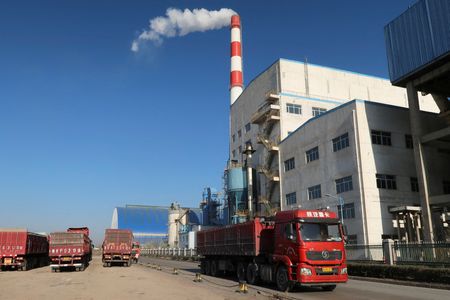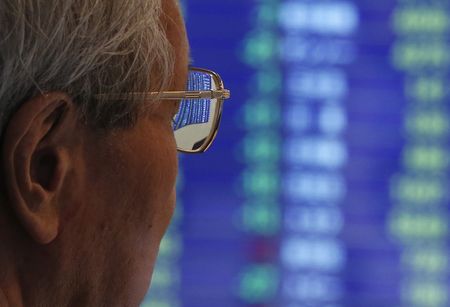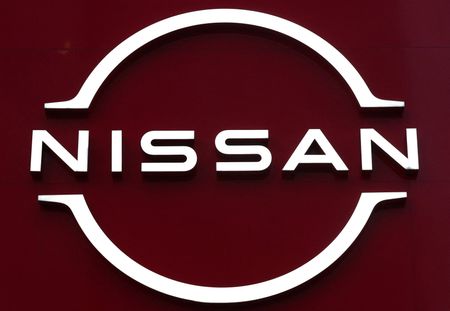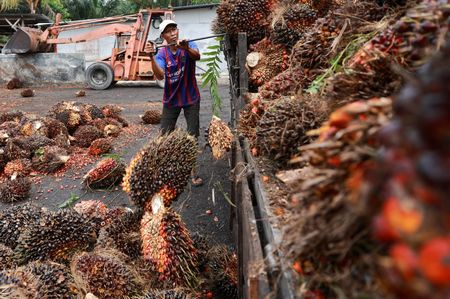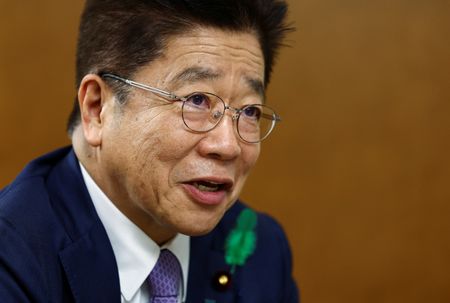BEIJING (Reuters) -China will tighten its carbon trading market by introducing absolute emissions caps in some industries for the first time starting by 2027, China’s cabinet said on Monday evening.
The absolute caps will be implemented first in industries with relatively stable carbon emissions by 2027, according to the opinion from the State Council. By 2030, China’s nationwide carbon market or emissions trading scheme (ETS) will be basically established with absolute emissions caps and a combination of free and paid carbon emissions allowances (CEAs), it said.
Currently, CEAs are based on carbon intensity benchmarks that are reduced over time, rather than absolute emissions caps.
Firms are granted a quota of free CEAs and if actual emissions exceed a company’s quota during a given compliance period, it must buy more allowances from the market to cover the gap. If its emissions are lower, it can sell its surplus CEAs.
The ETS will expand by 2027 to basically cover major carbon emitting industries, the opinion said without detailing the specific industries.
Analysts have said chemicals, petrochemicals, papermaking and domestic aviation would be among those included in the scheme.
In a previous expansion in September, China said it would broaden its carbon market to include the steel, cement and aluminium industries – which would cover about 60% of the country’s greenhouse gas emissions – but analysts said the large amount of free allowances mean that the market has so far had little effect on China’s carbon emissions.
The ETS was first launched in July 2021 and previously only covered the power sector.
(Reporting by Colleen Howe; Editing by Sonia Cheema)

